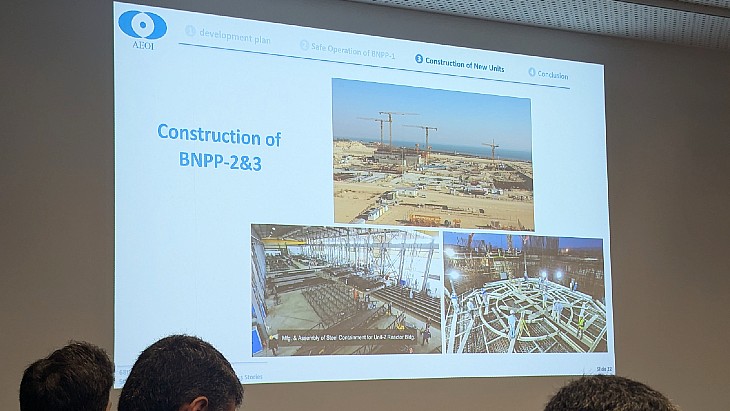Newcomer countries need 'collaborative approach'
.jpg)
"It is unlikely that there are obstacles in the domestic programmes of Russia, China, South Korea or India that need to be resolved or removed in order to increase the pace of growth [in nuclear power]," said Ahab Abdel-Aziz, the global director of Nuclear Power Generation at Gowling WLG.
"These are programmes that are working well: There's not a whole lot that we can teach those markets to increase the pace of growth. And similarly, it's unlikely that western economies will be the engine of that growth - partly because of saturation of their infrastructure growth."
However, he said one substantial opportunity comes from newcomer countries, which represent a "significant element or potential element" of that growth. Newcomer countries have usually done "a lot of conventional power development" by the time they have decided they are ready for a nuclear power project, he suggested.
George Borovas, a partner and the head of nuclear at Shearman & Sterling, noted there are different types of newcomer countries. There are those with limited or no nuclear experience, and there are those that may have experience in large infrastructure or conventional power projects, but not nuclear projects. He suggested that it can be easier for countries to adopt other models or best practices as compared to countries with an existing nuclear industry.
"In a nuclear power project, the context is really quite different [to a conventional project]," Abdel-Aziz said. There are political, regulatory, technological, construction, market and financial influences that can affect the success of a project. "The stakes are extremely high for all those involved."
He added that it is not the technology that has created delays and cost increases for nuclear new build projects. "The difference is in what people do, how people behave in relation to a nuclear power project. In particular, to my mind, it's how the class of project management personality and senior executives on the owner's side, on the vendor's side and in the supply chain behave in a particular circumstance which is when you have a problem."
The vendor, he said, has to be focused on the successful completion of a project. "The only rational approach is to establish a common interest, reasonably allocate risk, share information in real-time, and collaborate fully on solving problems."
Borovas said that in negotiations with newcomer countries clarity as to party risk allocation and risk-sharing is key. Negotiations should also focus on the success of the project as "we all succeed or fail together". He suggested that collaborative negotiations result in a collaborative culture during project implementation. Owner and vendor leadership is key, with the assistance of experienced advisers in a supporting role.
"It is very easy for commercial negotiators, technical negotiators and lawyers to sit across a table from each other and to be caught up in what is effectively a game of negotiations, where you are going to make some gain, you have some sort of a win," said Abdel-Aziz. "It is very easy to do that and lose sight of the overall objectives.
"You've got to be able to step back and recognise when you are dealing with the kind of issue that if you get it wrong, one side or the other can kill the project. When you recognise that, you want to adopt a different approach to coming to a solution so that you are prioritising the interest of the project. That not only is good practice to get to an agreement that's focused on the project success, but it sets the tone for how the two sides behave."
_92619.jpg)

_84504.jpg)







_88592.jpg)

